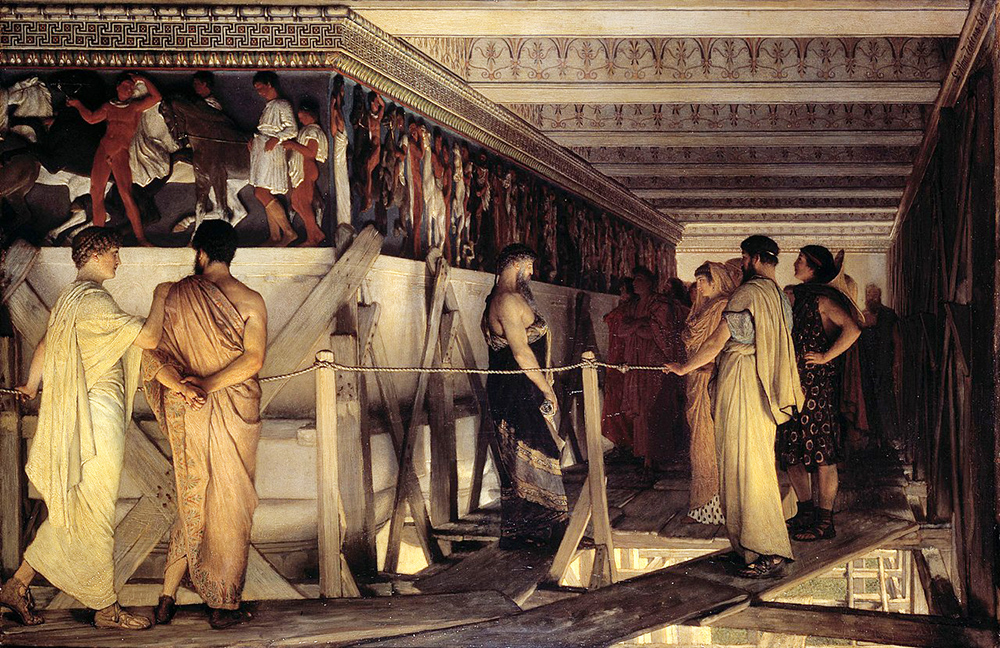

495-429 BC


495-429 BC
Pericles was a prominent and influential Greek statesman, orator and general of Athens during its golden age - specifically the time between the Persian and Peloponnesian wars. He was descended, through his mother, from the powerful and historically influential Alcmaeonid family. Pericles had such a profound influence on Athenian society that Thucydides, a contemporary historian, acclaimed him as "the first citizen of Athens". Pericles turned the Delian League into an Athenian empire, and led his countrymen during the first two years of the Peloponnesian War. The period during which he led Athens, roughly from 461 to 429 BC, is sometimes known as the "Age of Pericles", though the period thus denoted can include times as early as the Persian Wars, or as late as the next century.
Pericles promoted the arts and literature; it is principally through his efforts that Athens acquired the reputation of being the educational and cultural center of the ancient Greek world. He started an ambitious project that generated most of the surviving structures on the Acropolis (including the Parthenon). This project beautified and protected the city, exhibited its glory, and gave work to the people. Pericles also fostered Athenian democracy to such an extent that critics call him a populist. He, along with several members of his family, succumbed to the Plague of Athens in 429 BC, which weakened the city-state during a protracted conflict with Sparta. Read more

The speeches of Pericles were not written down and preserved. However, Thucydides in his history of the Peloponnesian War provides some idea of Pericles' power as an orator.
The funeral oration that he has Pericles deliver in honor of the dead during the first year of the Peloponnesian War is especially noble: "Of all cities Athens alone is even greater than her fame."
She needs no poet to sing her praises; every land and every sea can furnish proofs of her enterprise and success.
Her enemies when defeated are not disgraced; her subjects confess that she is worthy to rule them." Of Athens' dead he says: "To men who fall as they have fallen death is no evil."
For the whole Earth is the Sepulchre of famous men; and their story is not graven only on Stone over their native earth, but lives on far away, without visible symbol, woven into the stuff of other men's lives.
Pericles on the eve of war. "Nor is it any longer possible for you to to give up this empire . . . Your empire is now like a tyranny: it may have been wrong to take it; it is certainly dangerous to let it go."
But the bravest are surely those who have the clearest vision of what is before them, glory and danger alike, and yet notwithstanding go out to meet it. -- Thucydides' History of the Peloponnesian War
Freedom is the sure possession of those alone who have the courage to defend it.
Future ages will wonder at us, as the present age wonders at us now.
If Athens shall appear great to you, consider then that her glories were purchased by valiant men, and by men who learned their duty.
Instead of looking on discussion as a stumbling block in the way of action, we think it an indispensable preliminary to any wise action at all.
Just because you do not take an interest in politics doesn't mean politics won't take an interest in you.
Make up your mind that happiness depends on being free, and freedom depends on being courageous.
Time is the king of all men, he is their parent and their grave, and gives them what he will and not what they crave.
Wait for that wisest of all counselors, Time.